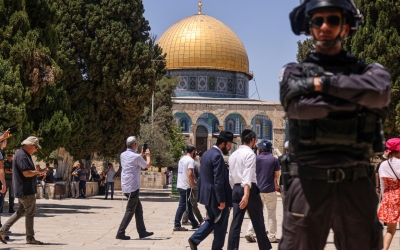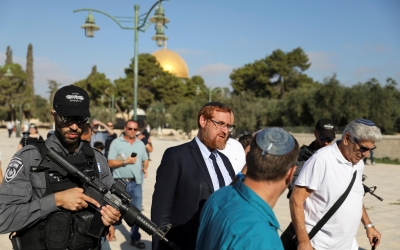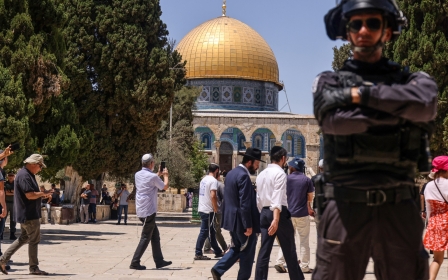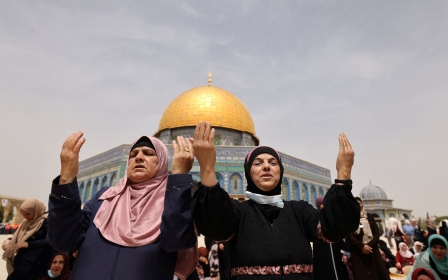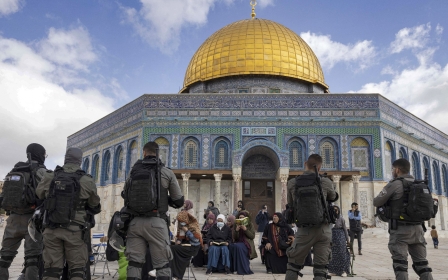Palestinians warn Israeli court ruling on al-Aqsa prayer a 'dangerous escalation'
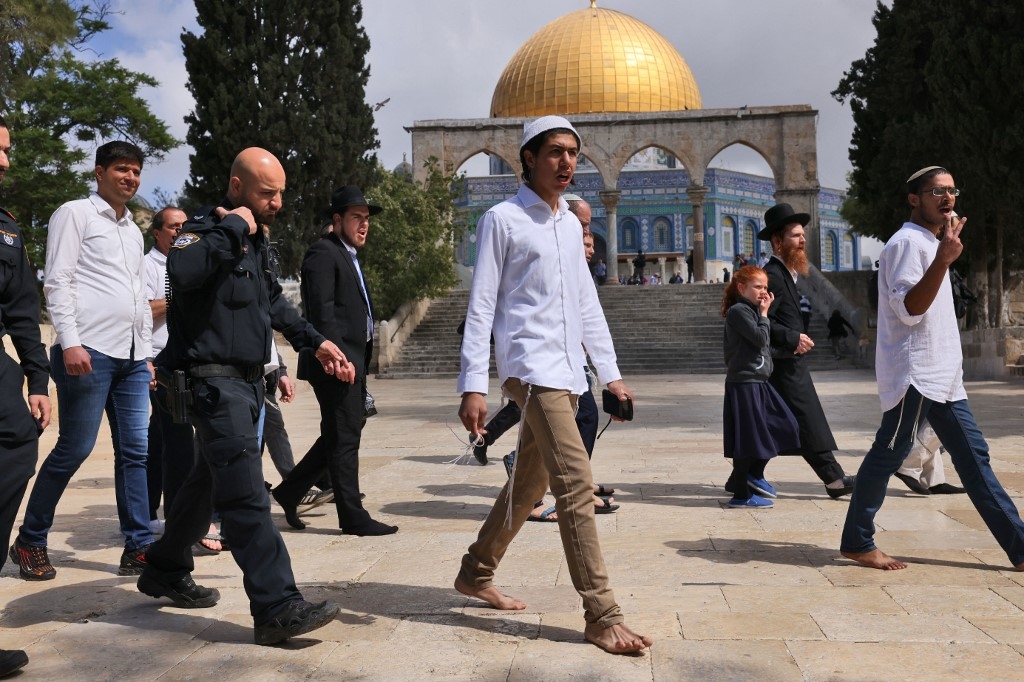
An Israeli court ruling that suggested it is not unlawful for Jewish prayer to be held in the courtyards of Jerusalem's al-Aqsa Mosque is "playing with fire", Palestinian factions and religious authorities warned on Monday.
On Sunday, the Jerusalem Magistrate's Court overturned a police restraining order against three Israeli far-right activists for praying at al-Aqsa Mosque in violation of a longstanding understanding between Israel and Jordan, which administers the affairs of the mosque.
As part of the delicate decades-old arrangement, non-Muslims are allowed to visit al-Aqsa under the supervision of the Waqf, a joint Jordanian-Palestinian Islamic trust that manages the affairs of the mosque. However, only Muslims are allowed to pray in the courtyards and prayer halls of the mosque.
Israeli police try to stop non-Muslim visitors from praying at al-Aqsa although no Israeli laws explicitly prevent Jews from doing so.
Last week, police barred three Israelis from entering the al-Aqsa for 15 days after they performed Jewish rituals during a police-protected raid.
The three appealed the ban to the magistrate's court, which ruled in their favour.
Judge Zion Saharai, while noting he did not intend to interfere in law enforcement policy, said they had not "raise(d) worry of harm befalling national security, public safety or individual security".
The ruling was seen by Palestinians as paving the way for allowing Jewish prayer in al-Aqsa.
The Israeli prime minister's office was quick to release a statement saying that there is no plan to change the status quo.
"Regarding this specific criminal case, the state has informed the government that it will appeal the decision in the district court," the statement said.
'Crossing all red lines'
Various Palestinian groups were quick to denounce the ruling.
Palestine Authority (PA) Mahmoud Abbas said it was a "grave assault on the historic status quo... and a flagrant challenge to international law."
The Hamas movement affirmed in a statement that al-Aqsa Mosque belongs to Muslims alone and warned the recent ruling "is playing with fire, crossing all red lines and is a dangerous escalation for which the occupation will bear responsibility."
Religious authorities in Jerusalem, including the Islamic Waqf, rejected the ruling in a joint statement on Monday.
"We do not recognise any decision or law on Al-Aqsa Mosque from any court or party, since the blessed site is an Islamic mosque by divine decree," the statement read.
"The Al-Aqsa Mosque, in its entire area of 144,000 square metres, with all its mosques, prayer rooms and corridors is an Islamic site, for Muslims alone.
"Altering the historical, religious and legal standing that has existed since before 1967 in Al-Aqsa Mosque is dangerous."
Israel's control of East Jerusalem, including the Old City, violates several principles under international law, which stipulates that an occupying power has no sovereignty in the territory it occupies and cannot make any permanent changes there.
Israeli settlers and far-right activists, protected by the police, storm al-Aqsa Mosque on an almost daily basis.
Such stormings are organised by "Temple Mount" groups who have pushed for an increased Jewish presence at the site and advocate for the destruction of al-Aqsa Mosque and the Dome of the Rock to make way for a Third Temple.
The Sunday ruling comes a week after the Israeli government approved the annual far-right "Flag March" to pass through Jerusalem's Damascus Gate and the Old City’s Muslim quarter.
Israeli lawmaker Ram Ben-Barak warned on Monday that recent moves could lead to a "religious war".
"I think that during this sensitive period care must be taken," he told Kan radio. "We should not, with our own hands, cause a religious war here or all kinds of provocations that are liable to ignite the Middle East."
Reuters contributed to this report.
Middle East Eye delivers independent and unrivalled coverage and analysis of the Middle East, North Africa and beyond. To learn more about republishing this content and the associated fees, please fill out this form. More about MEE can be found here.


